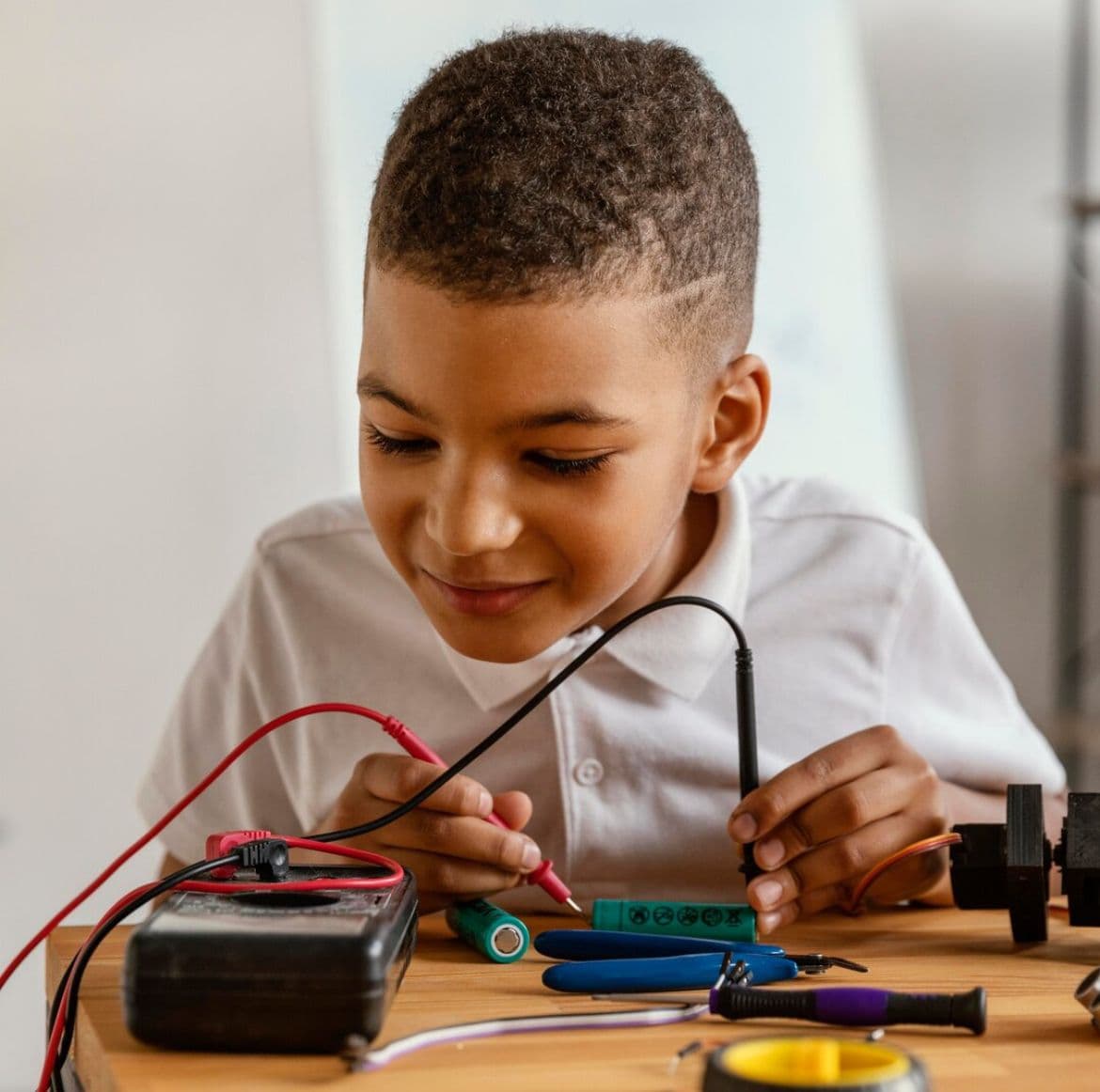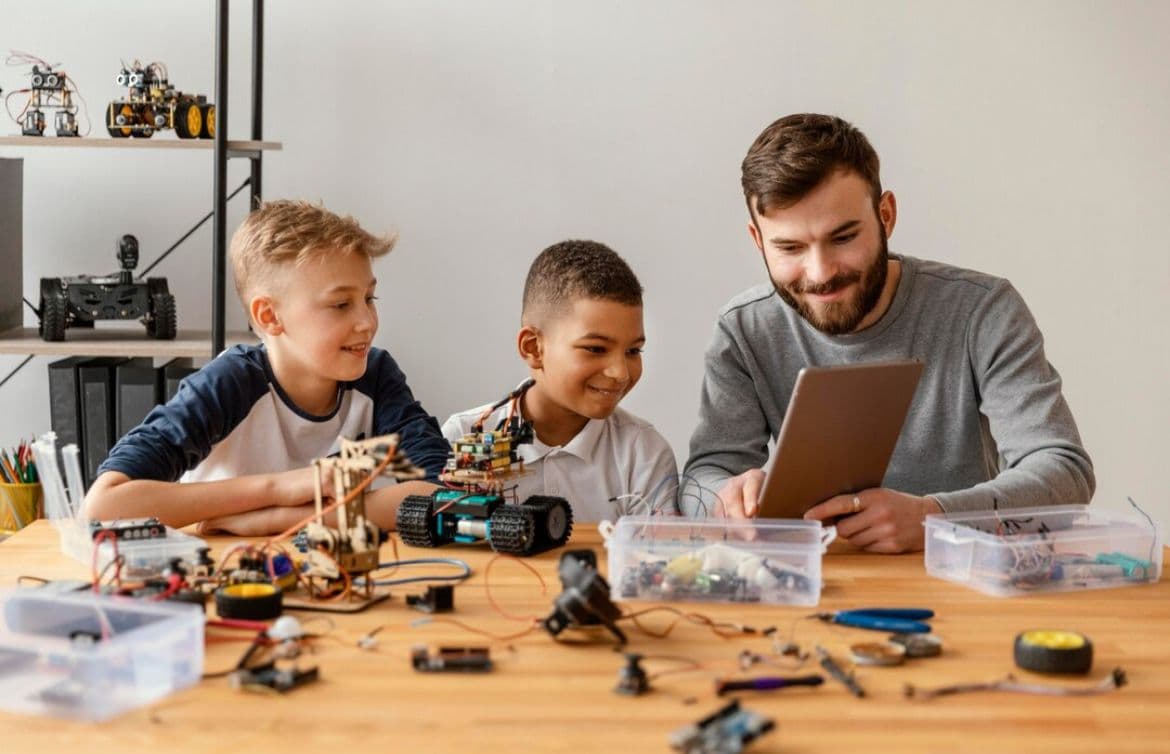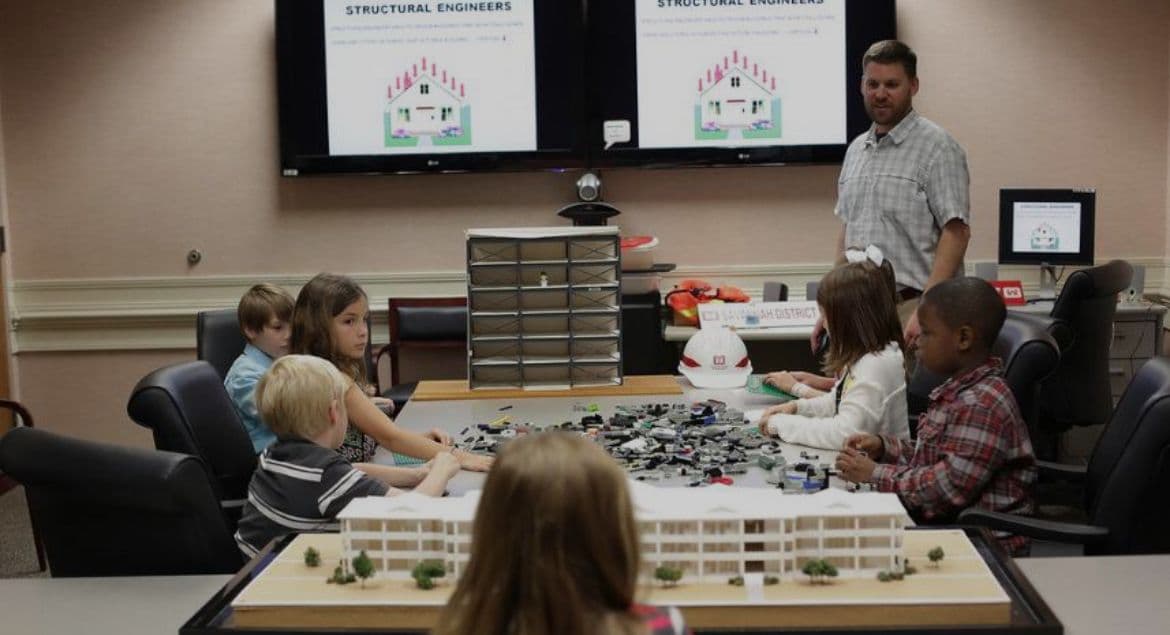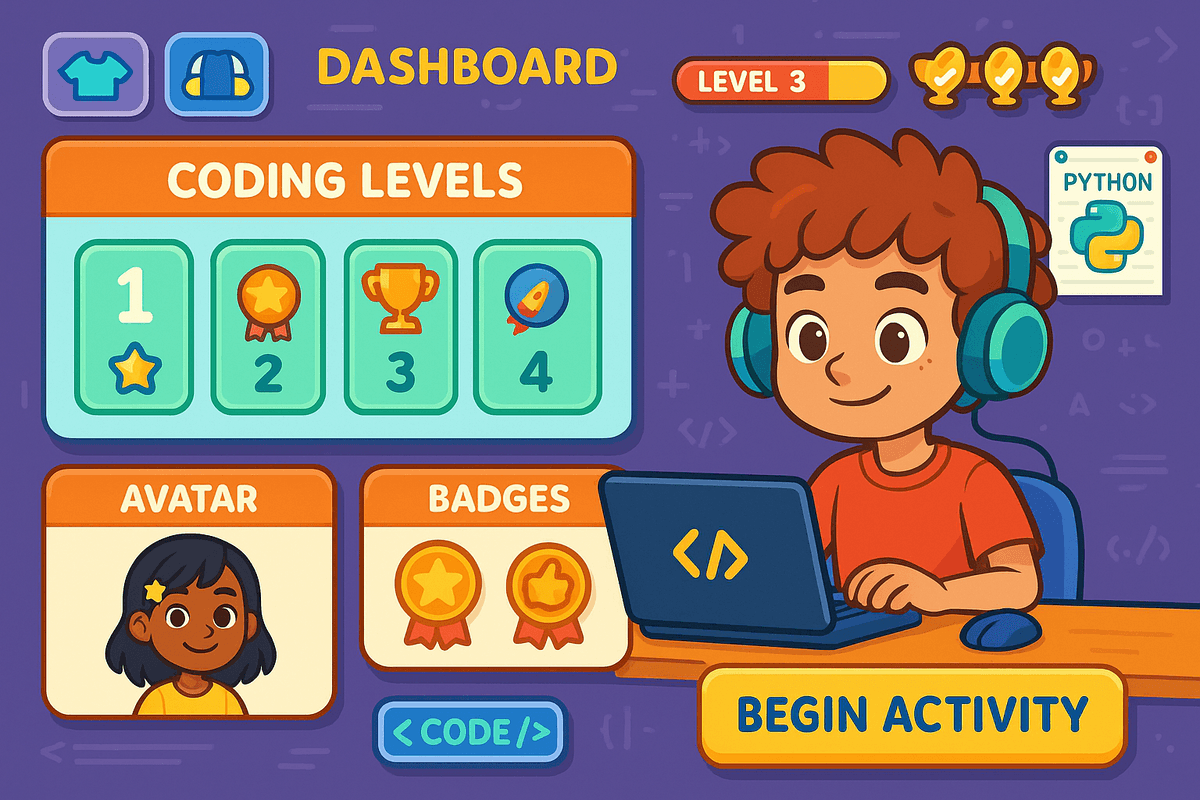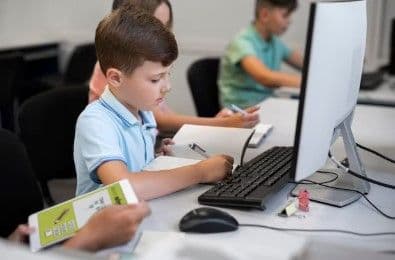Resources and Insights
The latest industry news, interviews, technologies, and resources.
Recent blog posts
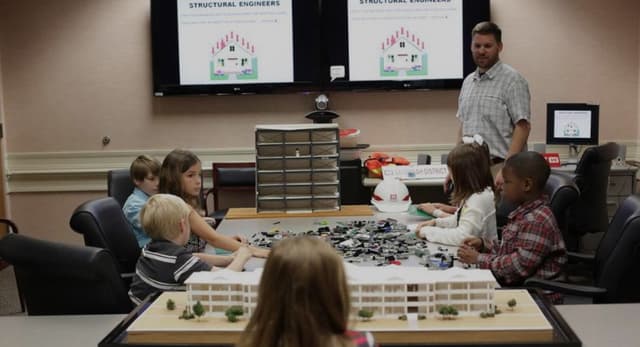
Nkechi
10/26/2025
The Science Behind Fun Learning: Why Kids Learn Better Through Play
If you’ve ever watched a child completely immersed in a game — laughing, experimenting, and refusing to give up — you’ve seen the power of play in action. At Code Funhouse, we believe that the best kind of learning doesn’t feel like a chore. It feels like fun. And science agrees.
In this post, we’ll explore why play-based learning and gamified education work so well, especially when teaching skills like coding.
What Is Fun Learning, Really?
Fun learning isn’t just about turning lessons into games. It’s about creating experiences that capture children’s curiosity, creativity, and motivation. In a fun learning environment, kids don’t just memorize facts — they explore, make mistakes, and try again until they understand.
Gamified education takes this a step further by blending learning with the mechanics of games — points, levels, challenges, and rewards — to make the process engaging and interactive.
At Code Funhouse, for example, our lessons are designed to make every coding exercise feel like a mini adventure. Kids learn Python concepts while solving puzzles, building simple games, or creating digital art — each task unlocking the next “level” of their coding journey.
The Science Behind Play-Based Learning
So, what makes play such a powerful teaching tool? Research in neuroscience and child development gives us a few clear answers:
Play Activates the Brain’s Reward System
When children play, their brains release dopamine, a chemical linked to pleasure, motivation, and focus. This natural reward system keeps them engaged longer than traditional teaching methods.
Play Encourages Active Learning
Unlike passive learning — where kids simply receive information — play encourages experimentation. They take an active role in solving problems, testing ideas, and seeing real outcomes. This strengthens critical thinking and problem-solving skills.
Play Builds Emotional Connection
When learning is enjoyable, children associate positive emotions with knowledge. This emotional bond helps them retain information better and boosts their confidence.
Play Promotes Creativity and Collaboration
Through play, children learn to take risks, think differently, and collaborate with others — all skills that are vital for both coding and life.
Gamified Learning in Coding: Turning Challenges Into Adventures
Learning to code can feel intimidating at first — especially for kids. But gamification changes that perspective. By transforming abstract coding concepts into playful challenges, kids start to view learning as an exploration rather than an obligation.
For instance:
- Earning badges for completing coding tasks keeps motivation high.
- Progress bars and mini goals show visible improvement, boosting self-confidence.
- Friendly competition encourages perseverance without pressure.
These small game-like elements transform lessons into stories of progress, where every mistake becomes part of the adventure — not a setback.
Why Fun Learning Works for the Real World
When kids learn through play, they’re not just coding; they’re learning how to think, adapt, and innovate. These are the very skills that will prepare them for future careers in technology and beyond.
Fun learning develops:
- Resilience — they learn to see failure as feedback.
- Curiosity — they ask “what if?” instead of fearing “what now?”
- Confidence — they realize they can create, not just consume, technology.
At Code Funhouse, we’ve seen firsthand how students light up when they finally debug a program or complete a coding mission. The joy of that moment is what makes the lesson stick — and what fuels their desire to keep learning.
Final Thoughts
Education shouldn’t be about forcing information into young minds. It should be about inviting them to explore. When children learn through play, they engage more deeply, think more creatively, and develop skills that last a lifetime.
At Code Funhouse, we’re on a mission to make learning feel like play — because when kids are having fun, their potential is limitless.
Let’s keep the fun in learning, and the learning in fun.

Nkechi
10/24/2025
October: Shining a Light on Breast Cancer Awareness 💗
Every October, the world comes together to recognize Breast Cancer Awareness Month, a time dedicated to spreading hope, education, and support for those affected by breast cancer. At Code Funhouse, while our main mission is to make coding fun and accessible for kids, we also believe in using our platform to raise awareness about important causes that affect our communities.
Why Breast Cancer Awareness Matters
Breast cancer is one of the most common cancers worldwide, affecting millions of women — and some men — each year. Early detection through regular screenings can make all the difference, increasing the chances of successful treatment and survival. But beyond statistics, it’s about real people — our mothers, sisters, daughters, aunts, and friends — who show strength and courage every day.
Small Steps, Big Impact
Awareness is the first step toward change. This month, we encourage everyone — our team, students, and community — to learn more, share helpful information, and show support in small but meaningful ways.
Here are a few ways you can participate:
- Wear Pink: Join the global movement by wearing pink throughout October to show solidarity and spark conversations.
- Learn and Share: Take time to learn about breast health and share educational resources with family and friends.
- Support the Fighters: Reach out to someone who has been affected by breast cancer — a message of love and encouragement can go a long way.
- Donate or Volunteer: Contribute to organizations working toward breast cancer research and patient support.
Code Funhouse Goes Pink 🎀
Throughout October, the Code Funhouse community is going pink! Expect to see pink-themed visuals across our platforms and messages promoting health and awareness. It’s our way of reminding everyone that technology and compassion can go hand in hand.
We’re also encouraging our young coders to take part by creating mini projects inspired by the theme of hope and strength — from designing digital ribbons to coding awareness posters using simple programming tools. After all, learning to code isn’t just about logic and syntax — it’s about using creativity to make a positive difference.
Together, We Make a Difference
At Code Funhouse, we stand with everyone fighting breast cancer and honor the memories of those we’ve lost. Let’s continue to spread awareness, encourage regular health checkups, and support one another with kindness and love.
This October, let’s code with purpose, care with passion, and remember — awareness saves lives. 💕
All blog posts
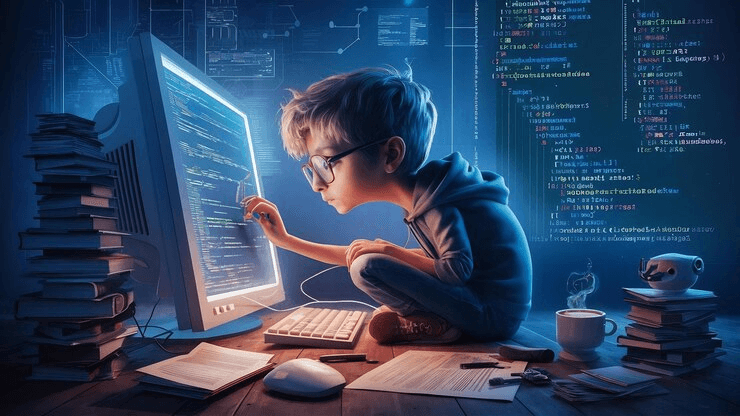
Nkechi
2/10/2025
Coding for Kids: Why Start Early?
In today’s digital world, coding is becoming an essential skill, much like reading and math. While traditionally reserved for computer science professionals, coding is now a valuable ability for children to learn early in life. Introducing kids to coding at a young age can help shape their cognitive development, boost creativity, and set them up for future success in an increasingly tech-driven society. But why is it so beneficial to start early? Let’s explore the key reasons why coding should be an integral part of early childhood education.
The Benefits of Introducing Kids to Coding at a Young Age
1. Enhances Problem-Solving Skills
Coding teaches children how to break down complex problems into smaller, manageable steps. When kids write code, they must think through problems logically, identify errors, and troubleshoot solutions. This systematic approach to problem-solving helps them build resilience and perseverance, valuable skills applicable across all areas of life.
2. Strengthens Logical and Computational Thinking
Programming involves following a set of instructions to achieve a specific outcome. By engaging in coding activities, children develop computational thinking, which enhances their ability to analyze patterns, recognize sequences, and use logic to predict outcomes. These skills are foundational not only for coding but also for subjects like math and science.
3. Encourages Creativity and Innovation
Coding is a medium for self-expression. Whether designing a game, building an interactive story, or creating animations, children can bring their ideas to life through programming. Learning to code nurtures creativity by allowing kids to experiment, make mistakes, and iterate on their projects—an essential mindset for innovation.
4. Builds Confidence and Independence
When kids successfully write a piece of code and see their project come to life, it boosts their confidence. Coding provides a sense of accomplishment and encourages children to take ownership of their learning. The ability to create something independently fosters self-reliance and a growth mindset, where they understand that challenges can be overcome with effort and persistence.
5. Prepares Kids for the Future Job Market
With technology advancing rapidly, coding literacy is becoming increasingly valuable in various industries. Even for careers outside of tech, understanding programming concepts provides a competitive edge. By starting young, children gain early exposure to a skill set that can open doors to future opportunities in STEM (Science, Technology, Engineering, and Mathematics) fields.
6. Promotes Teamwork and Collaboration
Coding is not a solitary activity—it often involves working with others to develop solutions, debug programs, or build projects. Many coding platforms for kids incorporate group-based learning, helping them develop communication and teamwork skills. These collaborative experiences mirror real-world scenarios where teamwork is crucial to success.
How Early Exposure Helps Build Problem-Solving and Logical Thinking Skills
Starting coding early helps children build critical thinking skills by engaging them in activities that require logical reasoning and structured problem-solving. Platforms like Scratch, Blockly, and Code Funhouse introduce coding through interactive games and visual programming languages, making the learning process enjoyable and accessible. Here’s how early exposure contributes to cognitive development:
- Developing Algorithmic Thinking: Children learn to sequence steps correctly to achieve a goal, an essential aspect of both programming and logical reasoning.
- Encouraging Experimentation: Coding encourages trial and error, teaching kids that failure is part of the learning process and that mistakes help refine their solutions.
- Strengthening Math Skills: Coding often involves mathematical concepts like patterns, loops, and conditionals, reinforcing math learning in a hands-on way.
Conclusion
Introducing coding at an early age equips children with essential skills that go beyond just programming. It fosters problem-solving, logical thinking, creativity, and confidence—all crucial traits for lifelong learning and success. With the right tools and engaging platforms like Code Funhouse, kids can explore the world of coding in a fun, interactive way. By starting early, we set them up for a future where they can thrive in an increasingly digital world.
Want to get started with kid-friendly coding lessons? Check out www.codefunhouse.com for engaging and interactive coding experiences designed just for kids!

